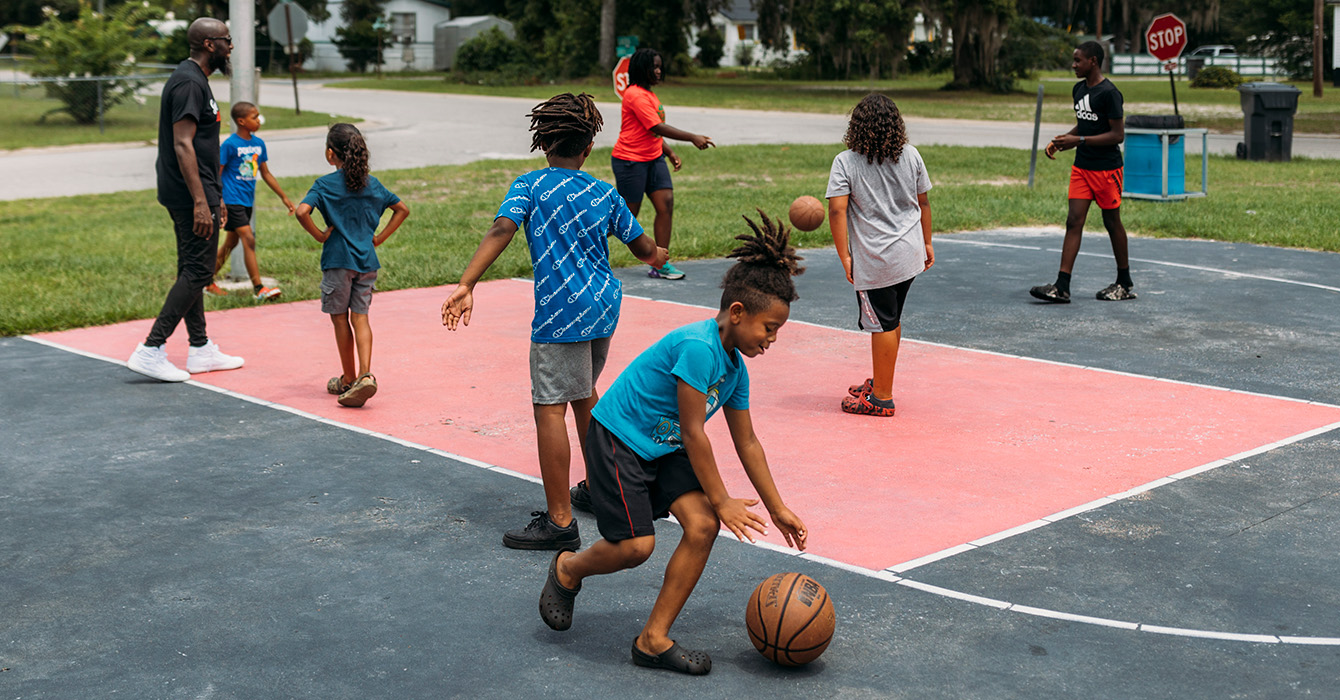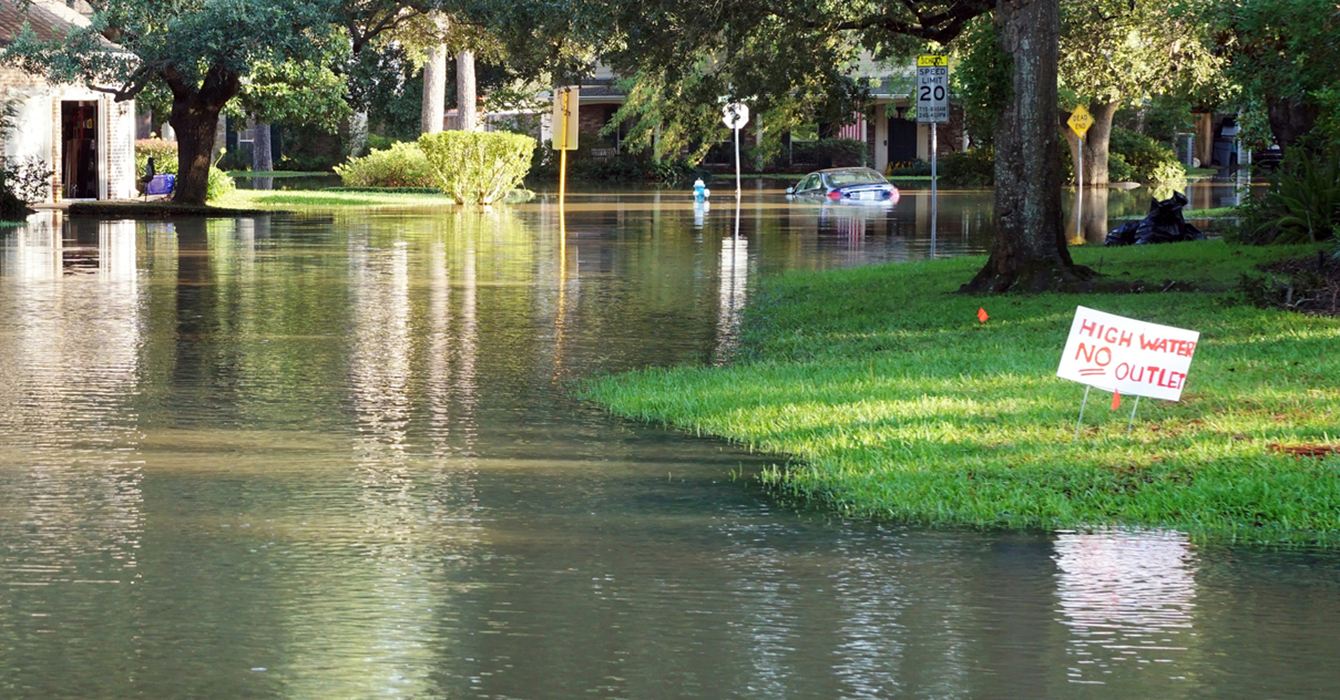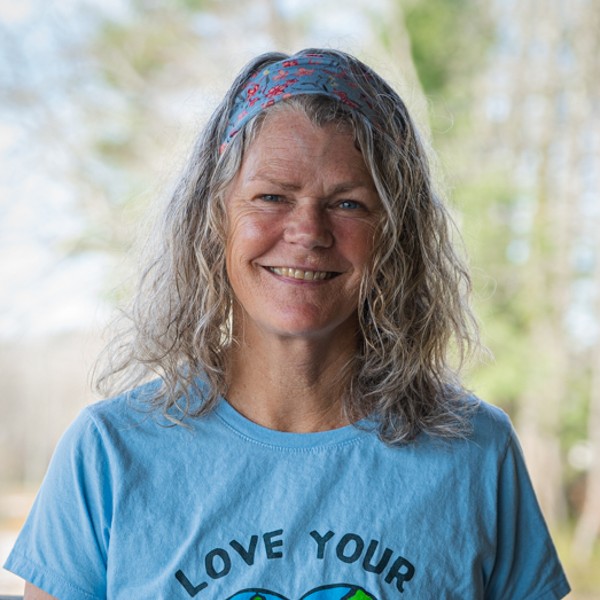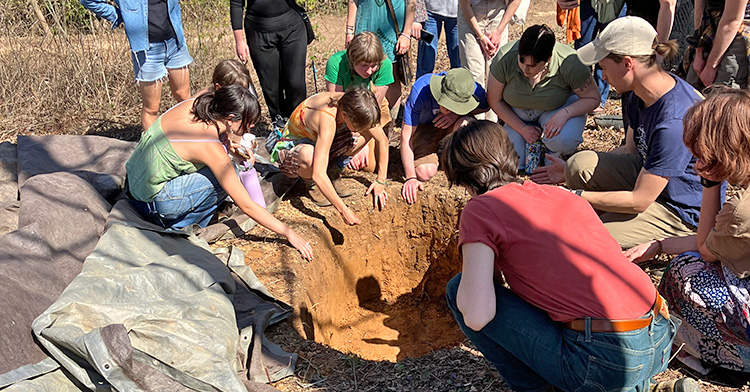The historic Folkston Depot does double duty in the center of this tiny Georgia railroad town, population 4,600. It serves as both a dusty train museum and as the office of the Okefenokee Chamber of Commerce, with its stacks of brochures for area attractions. Those include information about the chamber’s namesake Okefenokee National Wildlife Refuge, a vast swamp wilderness where visitors can bird-watch, paddle, fish and hike.
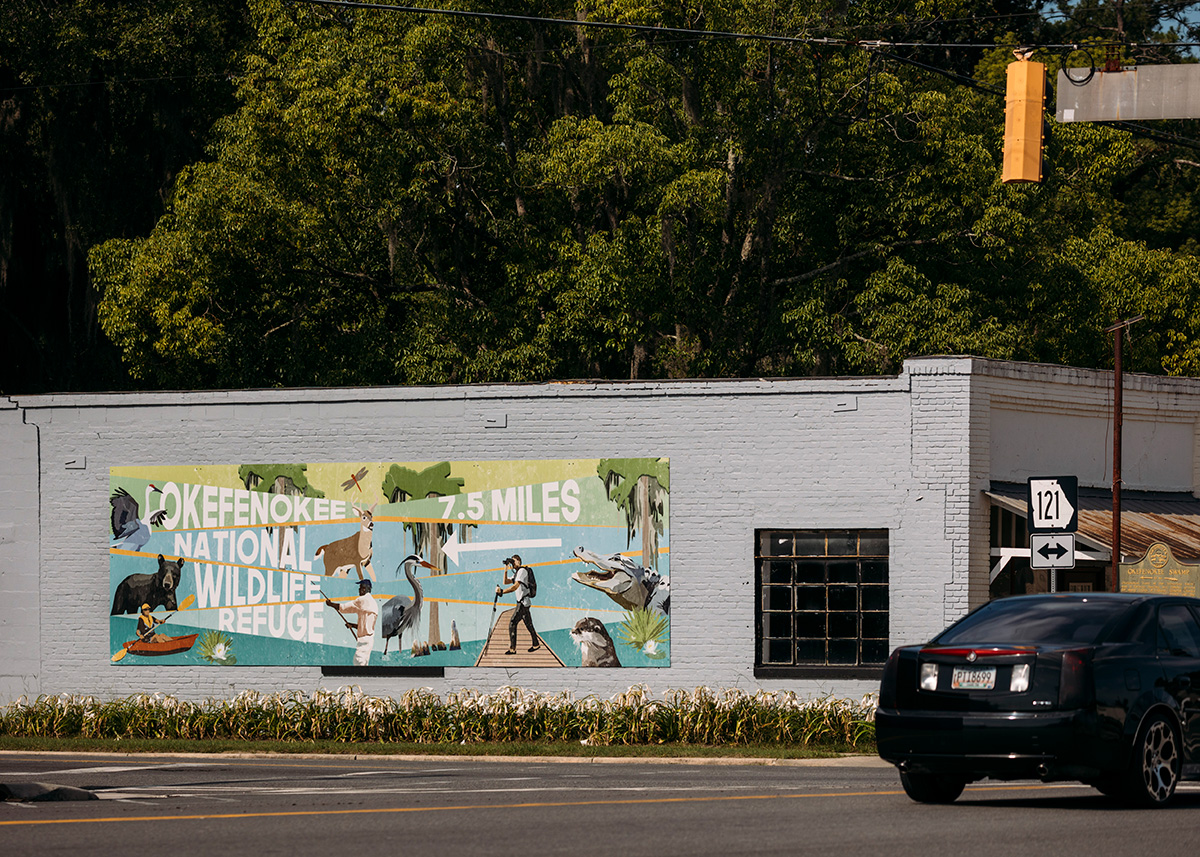
Trains still come roaring through on the way to nearby Waycross, Georgia, a main switchyard and hub for CSX, but there’s little other traffic and little other reason to visit this small community hugging the Florida state line.
“There’s not a lot of growth or opportunity in Folkston,” said the Rev. Antwon Nixon, a Folkston native and the gregarious pastor of Mt. Carmel Missionary Baptist Church.
Like the depot, Nixon also does double duty, and then some. In addition to serving Mt. Carmel’s congregation of 40 or so people, the former railroad electrician is the founder and director of Sowing Seeds Outside the Walls, an independent nonprofit that seeks to inspire, encourage and enrich the community through mentorship, education and financial investment.
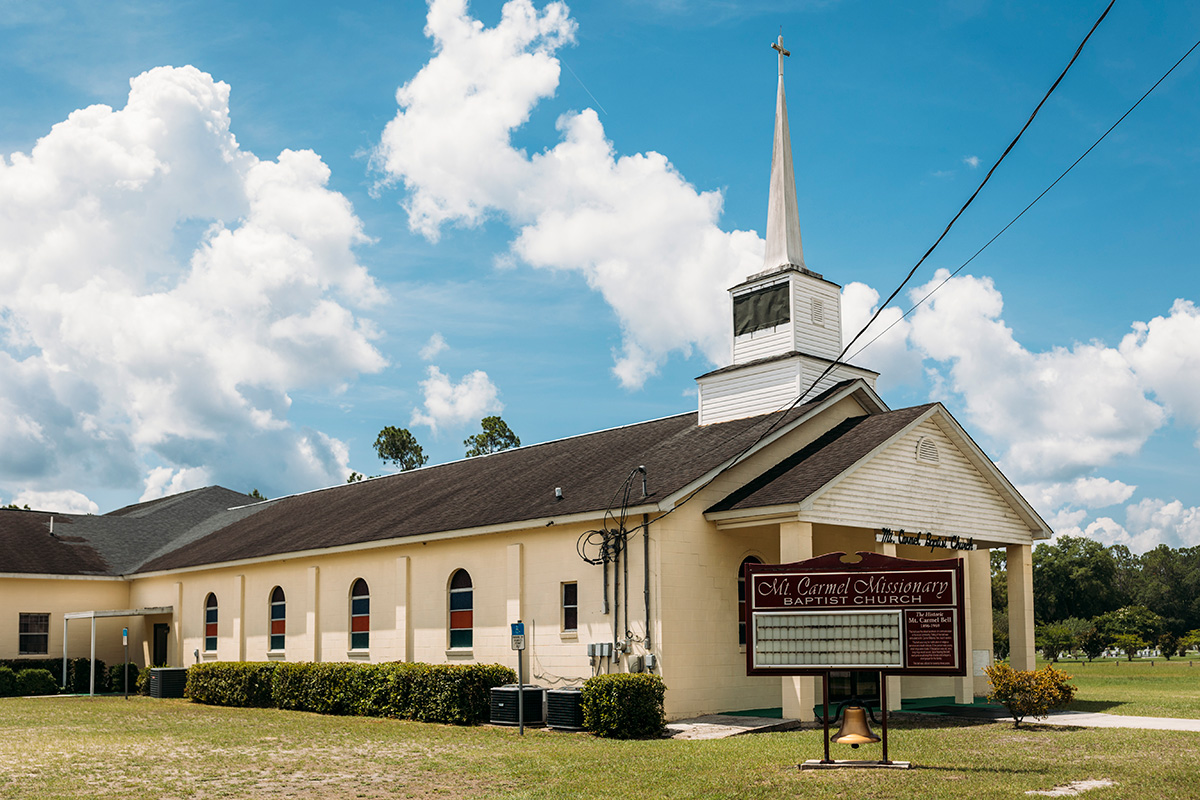
But at the moment, he’s busy sowing cyclists — rallying Folkston folks, especially youth who may or may not have bicycling experience — to join him for their first community training ride through the swamp.
“If they don’t have a bike, we’ll provide one,” said Nixon, who is well known in Folkston for his basketball prowess but is new himself to cycling.
“I found out about the BRAG Dream Team (a youth mentorship offshoot of the annual Bike Ride Across Georgia/BRAG) and thought, ‘What a perfect way to get people active outside and encourage fellowship.’ And by holding our training rides at the Okefenokee, we can promote two things: bike riding and the swamp,” he said. “Introducing people who maybe haven’t been there in a while to the natural beauty and wonder right at our back door — what a positive spin.”
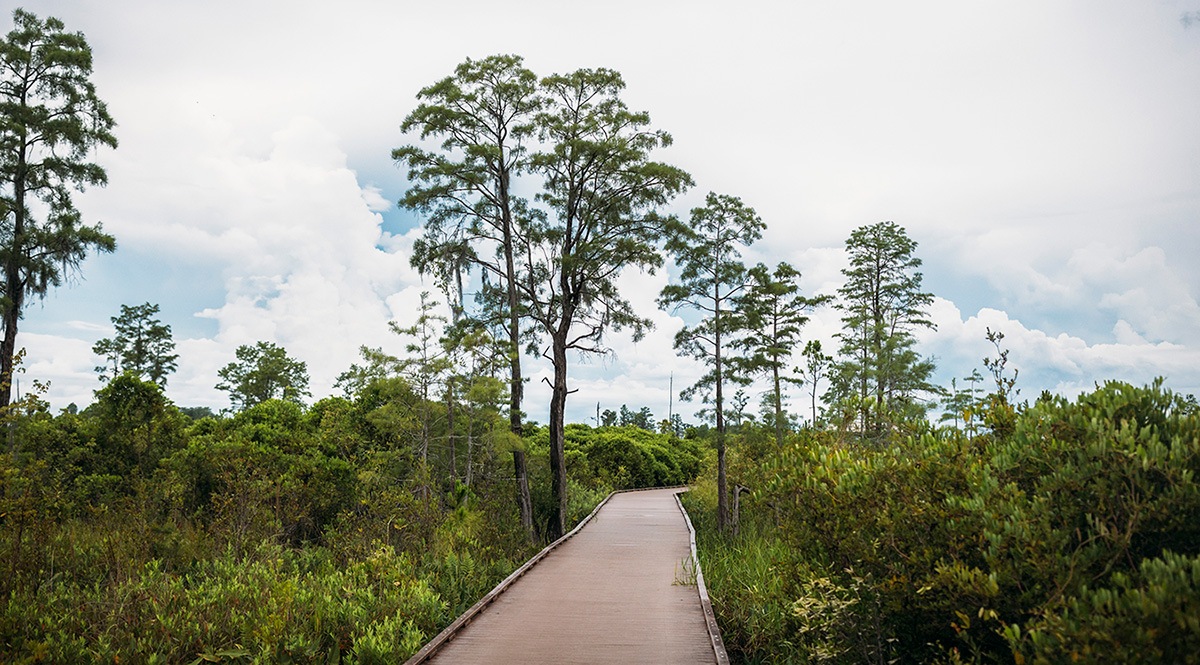
That’s how Nixon’s mind works, like a bike that readily shifts into the right gear for the right terrain. And he is always looking for ways to be the church outside the physical building.
Over the past four years, since founding Sowing Seeds, that has included reclaiming and transforming a derelict basketball court into a community park, taking young men from Folkston to Washington, D.C., and Selma, Alabama, and making numerous trips to the Georgia Statehouse to lobby for protecting the Okefenokee’s fragile wetlands.
To the foreground
Nixon, 48, sports a John Lewis-inspired “Good Trouble” tee and high-tops; his immaculately shaved head is countered by an impressive goatee. He has not always been outgoing.
“I used to never raise my hand for anything; I was just the guy who would hang in the back and quietly get things done. But now, for the charge that God has called me to, I’ve had to raise my hand and initiate the action,” he said. “God won’t allow me to stay in the background, because I’m needed in the foreground.”
As a hoops-obsessed kid nicknamed Cheez, Nixon never imagined while growing up that his life’s journey would involve ministry and community advocacy. Though he grew up going to church with his father, his preferred sanctuary was the basketball court.
“My dream after high school was to play in the NBA. I was the one who was supposed to make it. To this day, people tell me, ‘Hey Cheez, I thought you’d be in the big leagues by now.’ But I didn’t take that dream with me when I left Folkston — not for a lack of talent, just lack of focus,” he said.
After graduating from high school in 1995, Nixon moved to Jacksonville, Florida, where job prospects were more promising, but so were what he calls other “extracurriculars.” He got involved in drug dealing and gang violence.
Are there things you need to “raise your hand” about, even if you feel uncomfortable doing so?
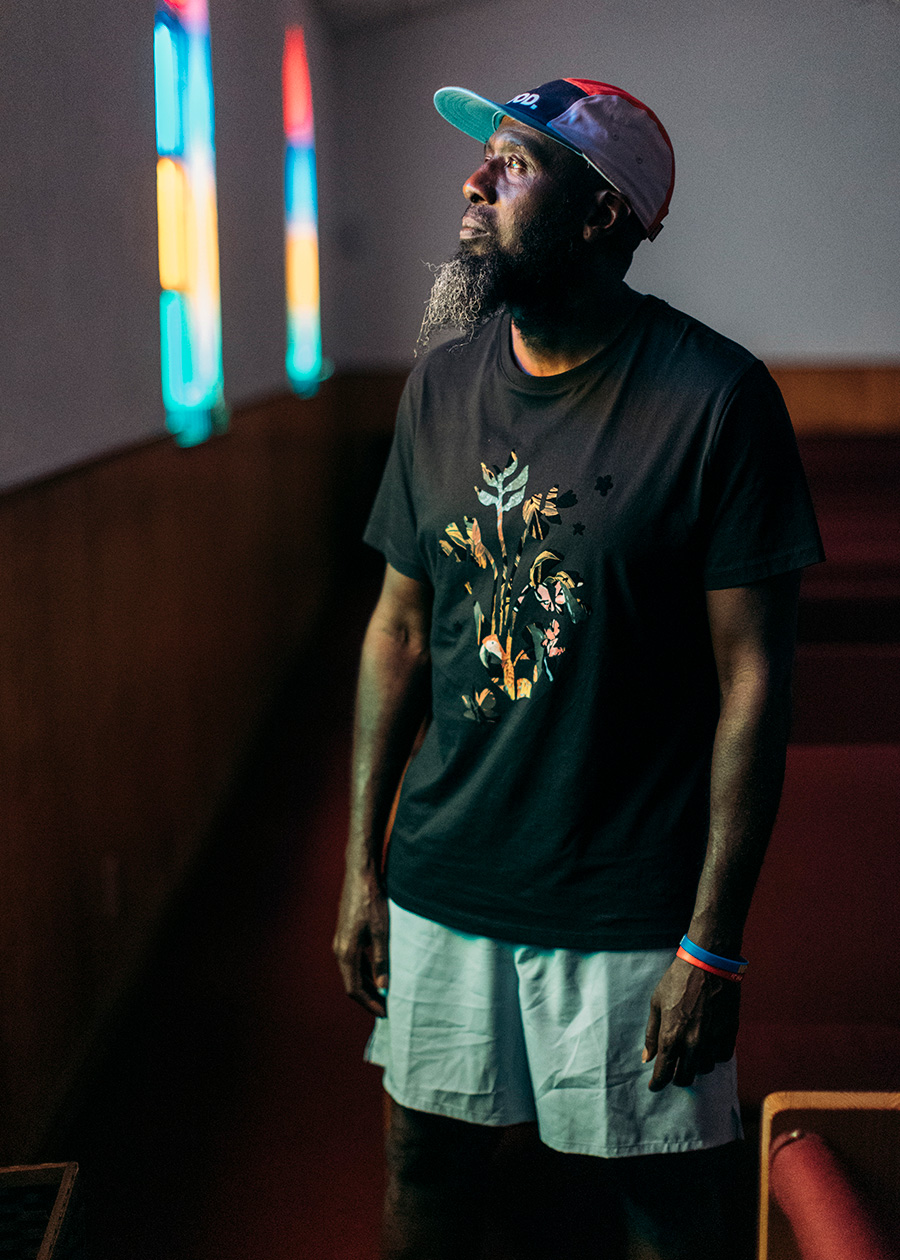
“Everybody around me was dying or going to prison,” he said. “Everything I did was wrong, and my life was in danger. The only safety I knew was to go back to Folkston and go back to church.”
In 2004, Nixon returned home to what he calls “the beginning of my resurrection.”
He eventually got a job with the railroad, and on Sundays he would sneak into the back pew of Mt. Carmel Baptist. The building was across the street from his childhood home, and he often played in the churchyard. Nixon was coming to terms with past choices. Now married and a father of four, he was determined to make amends and make a difference in his community. He slowly graduated from sitting in the back row to getting more involved in worship and church leadership.
“I came up old-school way,” he said, first becoming a junior deacon in training, then in 2014 being ordained a deacon. In April 2016, he was ordained a minister, and since February 2017 has served as Mt. Carmel’s senior pastor.
“I know why God brought me back to Folkston,” Nixon said. “My role is to help keep the youth today from ending up like I did. There’s a need for a leader in my generation. There are plenty of pastors, but no one with my story.”
Parable of the sower
Amid the challenges of pastoring during the pandemic, Nixon began to feel there was something more he was being called to.
How can you encourage people in the back row of the church to become more involved in leadership?
“I remember asking God two questions: How could I be better as a result of going through this once-in-a-century experience? And how can the church be better?” he said.
In what he describes as his “Nicodemus moment,” Nixon heard an answer: take the church outside. But not just outside for COVID-safe worship, ministering to the same people.
“No, God was telling me to take church to the park, to the darker area well beyond the church, where the nonchurchgoers are, where the drug selling is.”
In May 2020, Nixon began hosting Church Outside the Walls in different Folkston parks every fifth Sunday, complete with choir, drums and fans for the hot weather. The Saturday prior he’d host a free community day, with food, music and jump castles for kids.
What is your story? How can you bring your experiences into your ministry?
“I was doing this for the community, not asking for anything in return. Our flyers didn’t have Mt. Carmel’s name or mention my name, because this wasn’t about us. It was about reaching people’s hearts. I trusted God was lining the right people up.”
These early initiatives grew into Sowing Seeds Outside the Walls, officially incorporated as a nonprofit in 2022 to “invest heavily in communitywide building,” said Nixon, who took the name from the parable of the sower.
“It’s what you sow that matters,” he said. “Likewise, the book of Acts tells about the community bringing their resources together to put at the prophets’ feet” (Acts 4:32-37).
“We can be the resource to invest back into the community. We can do more together. We can galvanize resources and streamline them so everyone’s giving matters. Everyone in the community is part of Sowing Seeds; everyone can be a seed sower.”
As part of this work, Nixon began mentoring a group of five young men — “troubled, at-risk kids who lacked father figures. I was lucky to have grown up with a great father, so I could pass those lessons along,” he said.
Nixon’s approach to taking the church outside blends environmental activism and community service. Are there opportunities to do this in your neighborhood?
Nixon raised the money to take the young men to Washington, D.C., where they visited Congress, the National Museum of African American History and Culture, and the Martin Luther King Jr. Memorial, among other places of significance. Last year, Sowing Seeds took six young men on a Civil Rights pilgrimage to Selma, Montgomery and Birmingham, Alabama.
Kingston Braxton, now 16 and living in Kentucky, was a participant.
“I was getting into a lot of trouble at school, talking back and stuff. I met Mr. Antwon when I was 13, and I wouldn’t be in the good place I am now if not for him,” Braxton said. “Mr. Antwon was always there for me. When I was failing in school, he got me a tutor. In D.C., I got to walk through the halls of the White House. In Selma, we visited a woman’s house and sat in the same place that MLK once sat. I learned so much about my history that I didn’t know.”
Beyond road trips, Sowing Seeds dug in at home. When the county proposed “upgrading” a local basketball court by adding fencing that would be locked at 8 p.m., Nixon raised $16,500 to purchase the park outright. The derelict slab of concrete had once been a hub for Folkston youth, where a young Antwon spent endless hours playing pickup games, perfecting his slam dunk.
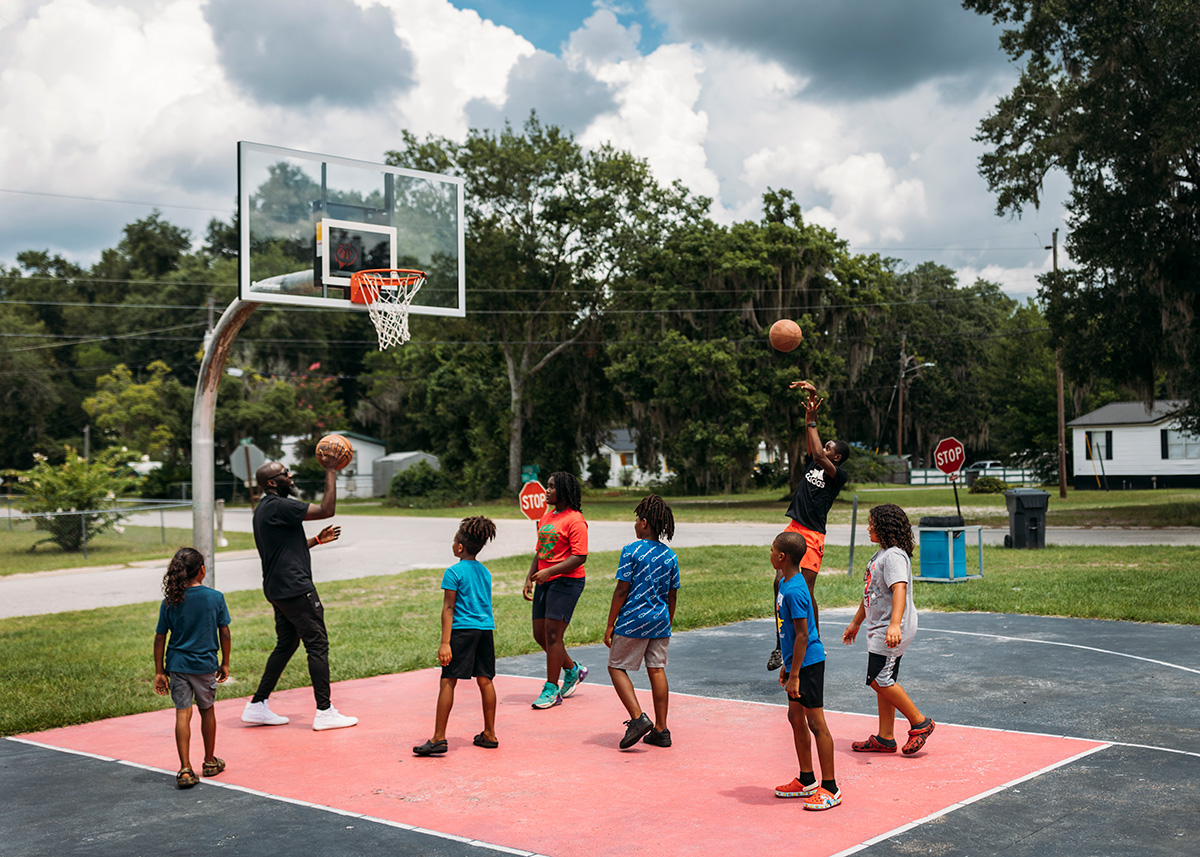
His goal was to restore it as a welcoming, safe place for kids to gather, play ball and enjoy healthy activity. In December 2024, Sowing Seeds received a $20,000 grant from Georgia Power to buy new equipment for the park, now named the Raymond Roberts Park in honor of a local NAACP activist who won a seat on Folkston City Council but died before being sworn in.
“Their idea of improving [the basketball court] meant locking everybody out,” Nixon said. “I knew we could do better. You have to give kids options if you want positive outcomes.”
Our Eden
Bike riding through the Okefenokee swamp may be the most recent positive “option” that Nixon and Sowing Seeds are offering the youth of Folkston, but it’s far from the first time Nixon’s ministry has extended to the vast wonderland of primeval forests, blackwater canals and alligators lurking in their backyard.
In what ways are you encouraging your congregation to be seed sowers?
Like most kids who attend Folkston grade schools, Nixon went on field trips to the Okefenokee and has fond, lasting memories. Specifically, he remembers Oscar, a 13-foot, 1,000-pound alligator, who was a main attraction.
“Oscar was huge, swam around in the blackwater like he owned the place. I was infatuated,” Nixon said. But he hadn’t thought much about Oscar, or the swamp, in the intervening 40-some years.
The Okefenokee’s 438,000 acres of pinelands, open wet prairies and forested cypress swamps were just always quietly there, easily taken for granted. Until Nixon learned of an Alabama company’s request to mine titanium near the swamp.
“When I realized the swamp was under threat, something dormant in me became alive again,” he said.
Though Oscar had long since died of natural causes (Nixon returned to find his skeleton on display in the visitor center), Nixon became passionate about working to protect the many other species, flora and fauna, that call the Okefenokee — a designated Wetland of International Importance — home.
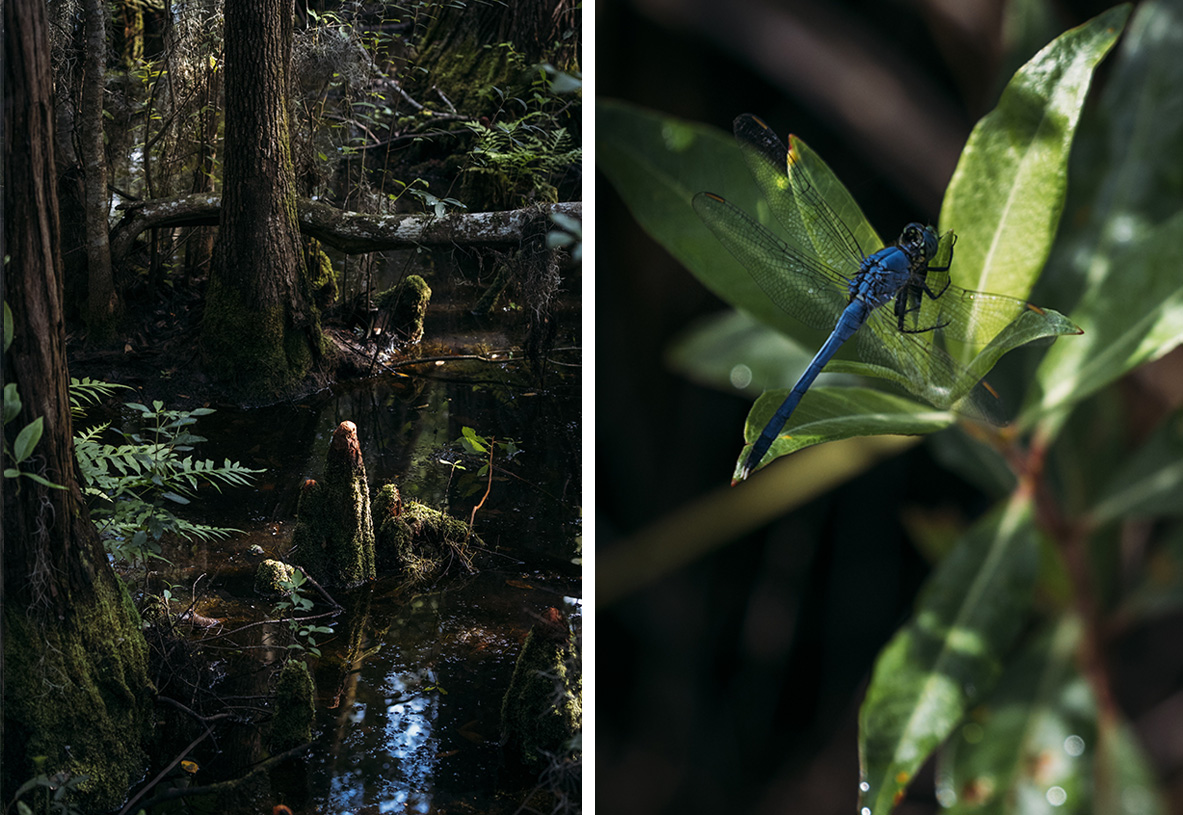
When Bill Sapp, an attorney with the Southern Environmental Law Center, asked Nixon to join a coalition to fight for swamp protection, he was all in.
“The Okefenokee is Eden to me,” the pastor said. “We’re working for heaven to be enacted on earth here. When they asked me to help advocate for the swamp, my niche was to bring in the spiritual perspective. I believe it’s our spiritual responsibility to be good stewards of the earth.”
Protecting the swamp’s fragile ecosystem is also central to Nixon’s vision for expanding economic opportunity in Folkston, a vision his wife Lakesha shares.
“I founded Sowing Seeds to make positive, productive change in Folkston,” he said. “We can’t sell out our community and the swamp to a private company seeking to extract public natural resources,” pointing to the numerous ways such mining would endanger the swamp’s complex hydrology.
Once protected, the Okefenokee, recently nominated for the UNESCO World Heritage List, can be an economic boon to finally give Folkston the growth it needs, Nixon said.
The animals, swamp and community would win with the sustainable business that comes with ecotourism, and the economy would grow through investment, rather than harmful extraction practices, he said.
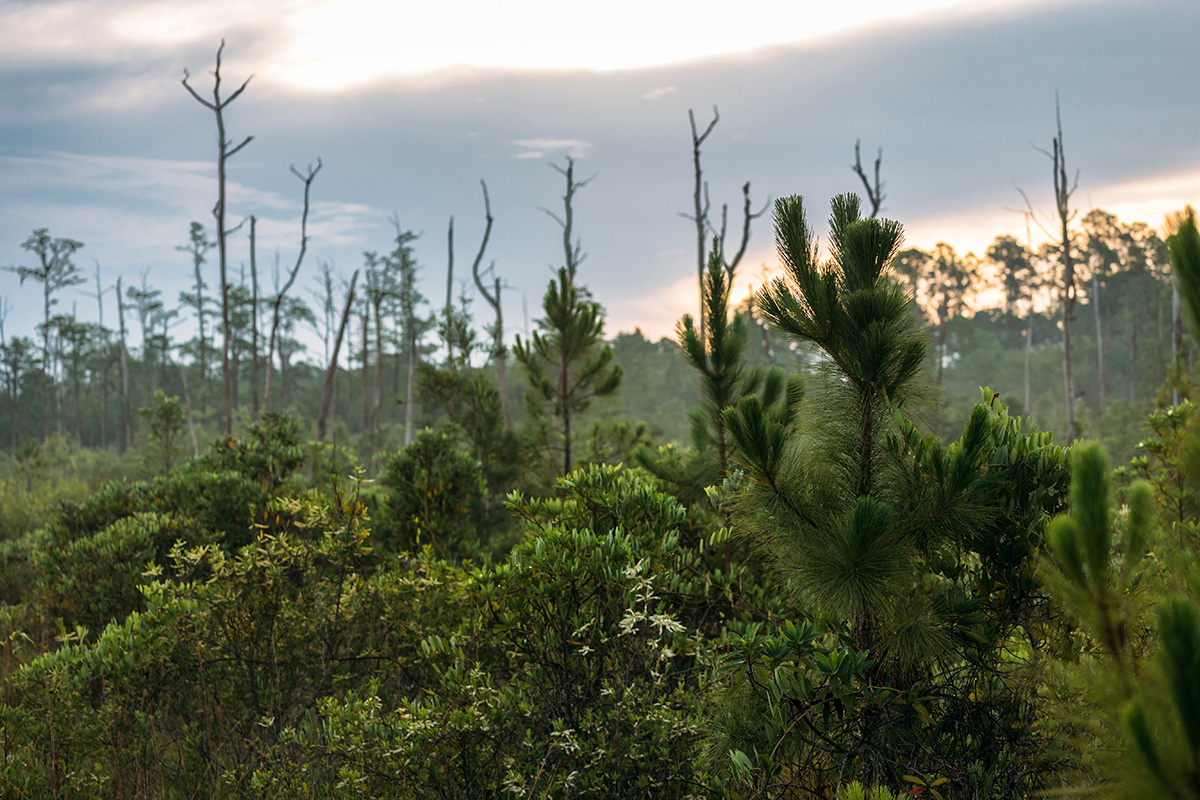
Nixon’s environmental advocacy and his passion for community investment are making an impact thanks to the trust he has built across the Folkston community, according to Ebony Garard, a Folkston native and Sowing Seeds board member.
“They’ve seen the consistency, the way Sowing Seeds keeps showing up for community building,” Garard said. “Antwon believes in us. He has a way of helping you feel everything is within reach. His gift is allowing you to see something within yourself you didn’t see.”
Seeing things anew extends to the Okefenokee. “It’s all about bringing new light to the community,” she said. “The swamp has been in our backyard forever, but we paid no attention to it. Now we’re understanding and appreciating that the health and protection of the swamp is essential to our community’s health. So we’re sowing seeds, but also cross-pollinating.”
Sapp has not been surprised that Nixon has become one of the most compelling and effective advocates for the Okefenokee. “The first time I met Antwon, I was immediately taken with his huge smile, his energy and enthusiasm,” the attorney said.
“And the work he was doing with the youth of Folkston was so impressive. I knew he’d be an incredible liaison with the community, and that’s exactly what he’s become. He’s truly a man about town, and his wife is really special too. Lakesha is a huge supporter of the swamp and the ecotourism it generates. The two are this dynamic duo.”
As they await the state’s review of the mining permit request, Nixon remains committed to the value of bringing the church “outside.” The environmental stewardship work “has helped me better understand what ministry really is,” he said.
“For me it changed, metaphorically and physically, when I ventured outside my comfort zone, and outside the church walls. The swamp was in me,” Nixon said.
By reconnecting to that nascent sense of wonder and being active in creation care, he believes his ministry has become more holistic. “The church, the planet, the community — all of it matters,” he said.
As he trains for the community swamp bike rides, he’s more prepared than ever to go the extra mile. For the people of Folkston, and for the Okefenokee.
“I never want to regret that I should have done more,” Nixon said. “We may not be able to determine the outcome, but we are called to do everything we can do.”
What outdoor spaces in your area are taken for granted? Could your faith community identify and protect them?
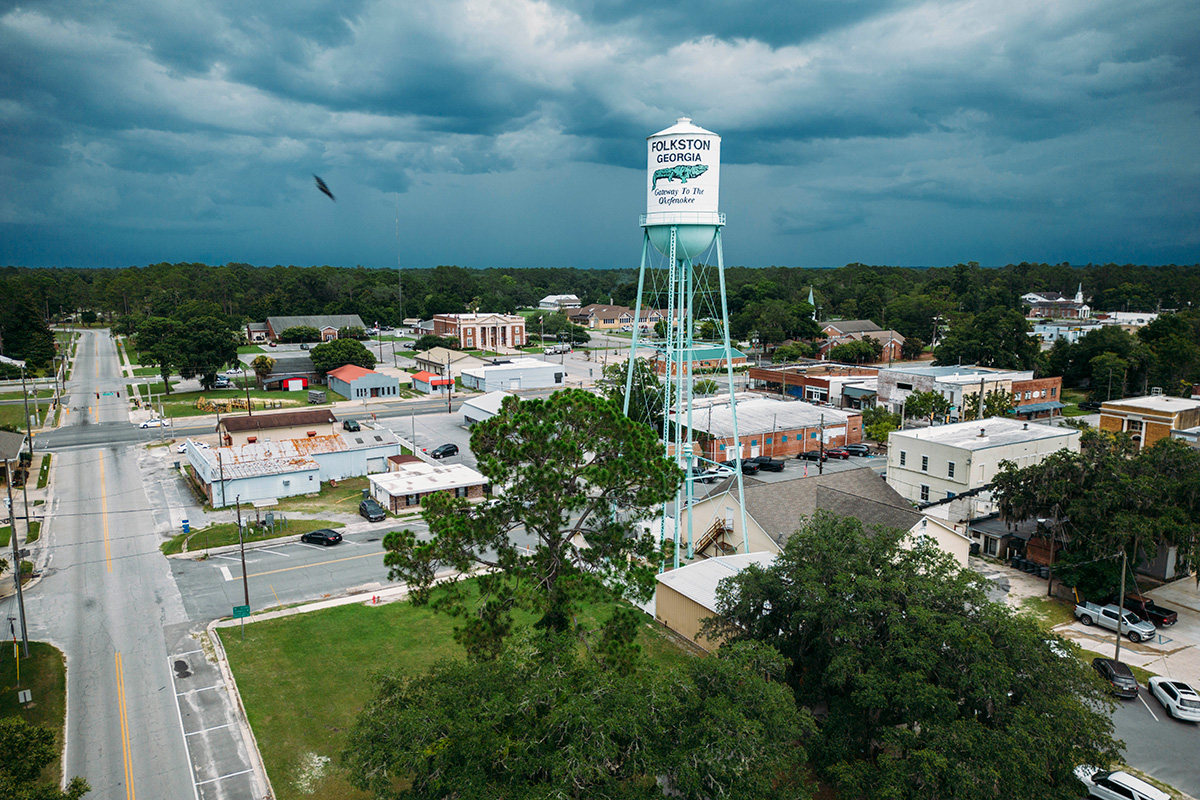
Questions to consider
- Are there things you need to “raise your hand” about, even if you feel uncomfortable doing so?
- How can you encourage people in the back row of the church to become more involved in leadership?
- What is your story? How can you bring your experiences into your ministry?
- Nixon’s approach to taking the church outside blends environmental activism and community service. Are there opportunities to do this in your neighborhood?
- In what ways are you encouraging your congregation to be seed sowers?
- What outdoor spaces in your area are taken for granted? Could your faith community identify and protect them?

